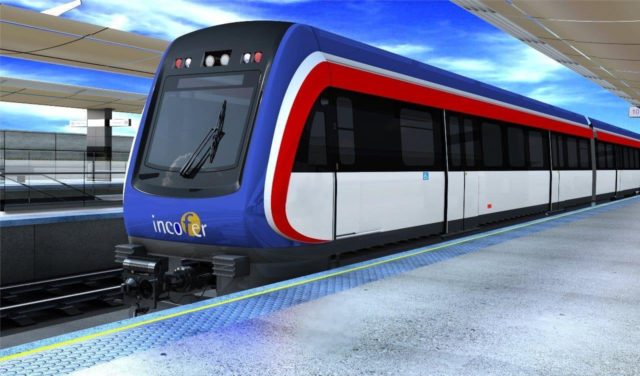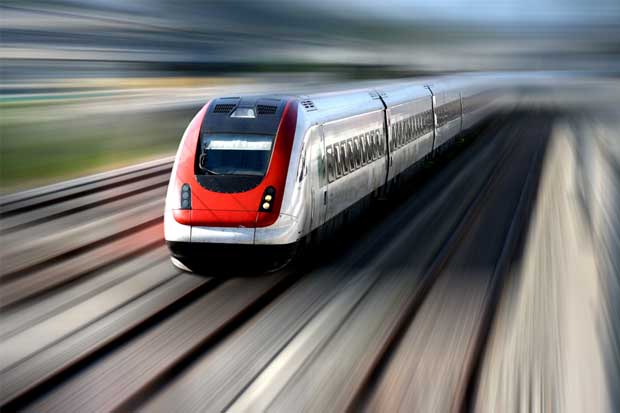
The First Lady of the Republic, Claudia Dobles, the Minister of Public Works and Transport (MOPT), Rodolfo Méndez, and the Executive President of INCOFER, Elizabeth Briceño, appeared on Tuesday before the Special Commission on Infrastructure of the Legislative Assembly, which is analyzing the draft Law No. 21958 for the approval of the loan for the Passenger Electric Train Project.
During the hearing, they presented the project’s contribution as a catalyst for the national economy, its impact on improving the country’s competitiveness, the investment climate, and job creation. In its construction phase, it is estimated that 1,200 direct jobs will be required and 1,470 for its operation.
Likewise, they referred to the contribution of the electric train in the generation of productive linkages with other sectors of the economy, such as tourism, commerce, manufacturing, food industry, construction, among others, and in the urban development of the areas in which it will transit, but mainly in the impact that it will have in the economic reactivation in all the communities around the 84 km road between Paraíso de Cartago and Coyol de Alajuela.
“There is a global consensus that public investment should be promoted at this time as an economic driver. This project that is currently being analyzed by the Legislative Assembly represents socio-economic development, it is a sustainable and resilient infrastructure, aimed at improving the quality of life of the most vulnerable population,” explained the First Lady.
For his part, the MOPT minister described the electric train project as one of the priority actions for the modernization of public transport. “The electric train is for people, to get on optimal public transport and improve their quality of life, connecting it with other means such as buses, taxis, bicycles, and pedestrianization,” said Méndez Mata.
The INCOFER executive president stated that “we are very pleased presenting to the Legislative Assembly and the country a serious, mature project that has completed all the necessary stages for the pre-investment that an undertaking of this size requires.
“We are sure that it will mean the modernization of the railroad system, so desired by many for years, and that will take Costa Rica to a first-world level in terms of intermodal public transport,” said Briceño.
Facts about the Electric Train.
The Electric Passenger Train will offer its users a modern, comfortable, safe, efficient, and environmentally responsible public transport option. It will connect 15 cantons of the Greater Metropolitan Area of the 4 most populated provinces of the country, and its route will be double track over 84 kilometers on the right side of the track that currently exists: line 1 (Paraíso-Atlántico), line 2 (Atlántico-Alajuela) and line 3 (Atlántico-Ciruelas) will operate independently, while line 4 (Alajuela-Ciruelas) and line 5 (Ciruelas-El Coyol) are proposed as extensions of lines 2 and 3 respectively.
It will provide service for at least 18 hours a day, 7 days a week, with frequencies of 5 minutes in peak hours for working days. It will have a capacity of 600 people per train and hopes to transport more than 200,000 people per day.
Loan project.

The Law project N ° 21958, presented on May 4th at the Legislative Assembly, aims to approve the loan for an amount of up to $ 550 million. This is a loan from the Central American Bank for Economic Integration (CABEI), which will finance the contribution that the State must give.
It is for a term of 25 years and does not have a commitment commission, which means that the Government of Costa Rica will not generate costs for having the resources approved but without use. In total, the Electric Passenger Train will have an investment of $ 1,550 million. There will be a counterpart for $ 1 billion of private foreign investment as it is a joint concession project.
The $ 550 million will go to the development of the required infrastructure and will begin to be paid within 5 years, during which time the bidder who wins the tender must finish the infrastructure and start operations of the Electric Train.
The repayment of the debt will begin twelve years after the approval of the financing, providing an important period for the growth of the Gross Domestic Product (GDP) of the country and allowing public finance adjustments and the development of infrastructure without increasing immediate indebtedness.

